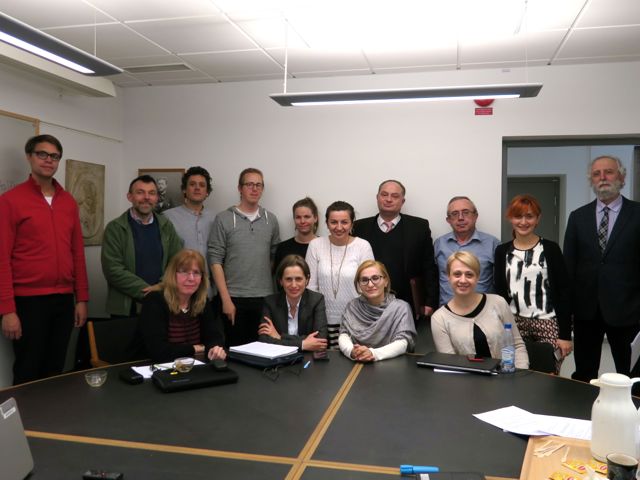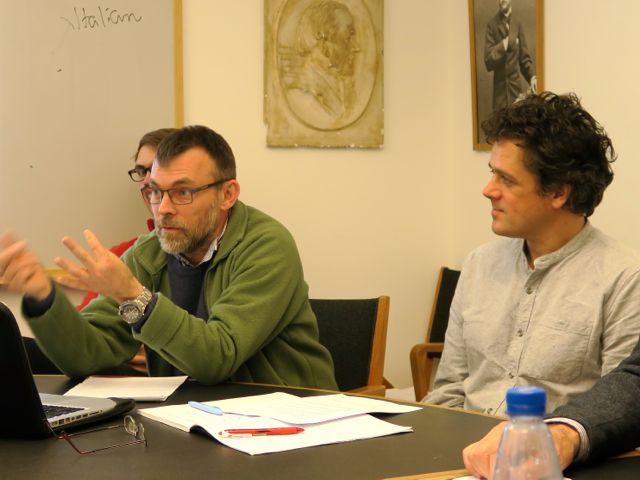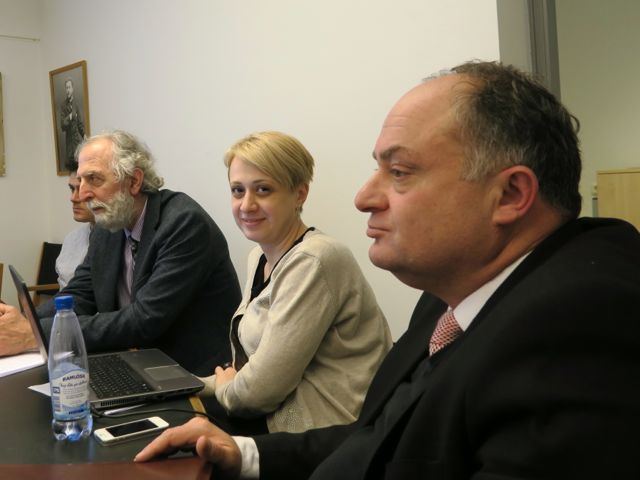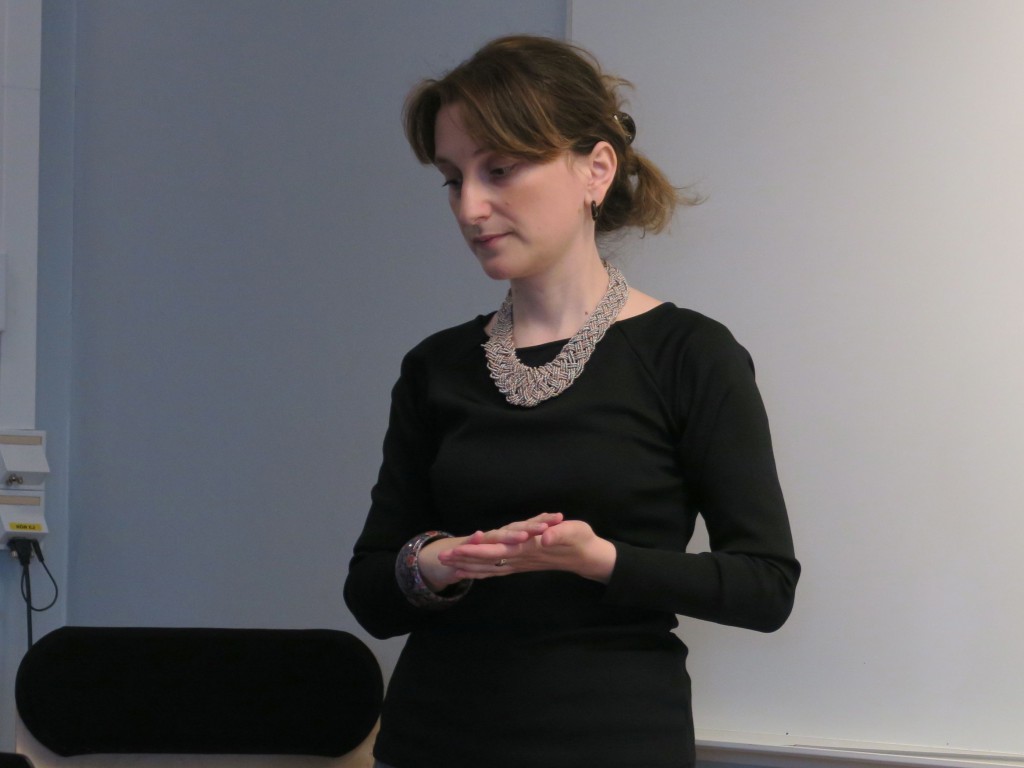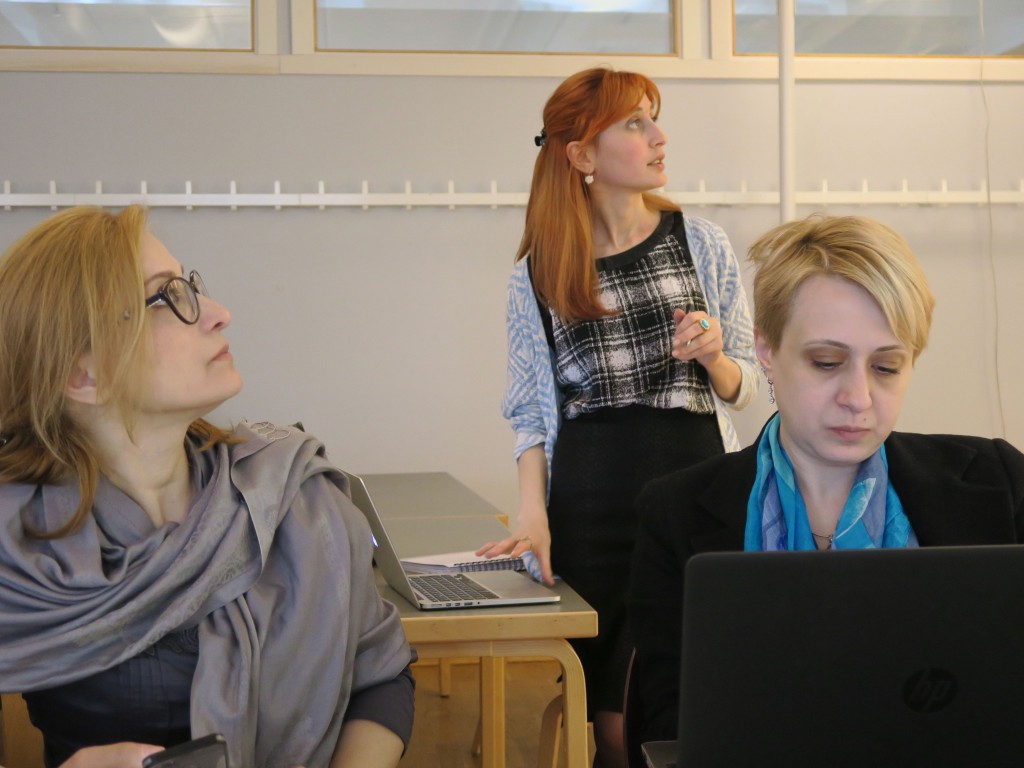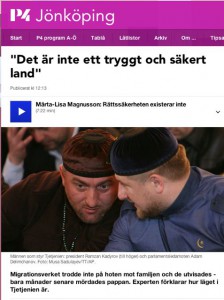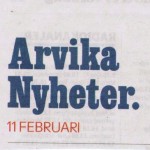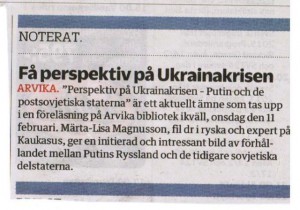A post-workshop seminar was held on May 12, where Maka Tetradze, 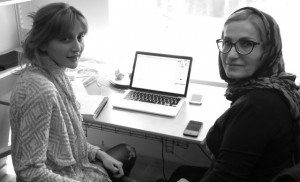 Erasmus Mundus exchange PhD
Erasmus Mundus exchange PhD
Candidate, and Prof. Nadezda Alipulatova, Faculty of Foreign Languages Dagestan State Pedagogical University, Makhachkala, Russian Federation, discussed their findings and observations on cultural vocabulary in Lezgian. Prof. Alipulatova was invited as an expert on Lezgian and guest researcher by the Lundic project – Lund Atlas of Language and Culture.
Author: imkava
Lundic workshop on Caucasian Languages
On May 4-6 the workshop Lexical and typological diversity in Caucasian languages. Methods and models for coding of big data was held at Linguistics (Center for Language and Literature, Lund University) and Caucasus Studies (Dept. of Language and Linguistics. Malmö University), as a part of research cooperation within the project LUNDIC – Lund Digital Atlas of Language and Culture (http://project2.sol.lu.se/lundic/). Project leader: Gerd Carling, Lund University.
Invited participants: Prof. Merab Chukhua, Tbilisi State University and Circassian Cultural Center, Georgia; Prof. Madzhid Khalilov, Institute of Language, Literature and Art, Dagestan branch of the Russian Academy of Sciences, Makhachkala, Russian Federation; Prof. Nadezda Alipulatova, Faculty of Foreign Languages Dagestan State Pedagogical University, Makhachkala, Russian Federation; Dr. Leila Avidzba, Scientific Research Center of Georgian-Abkhazian Relationships, Tbilisi State University, Georgia; Dr. Zarina Molochieva, Institute for Media, Language and Culture, Regensburg University, Germany.
Organisers: Gerd Carling (Lund University), Karina Vamling (Malmö University), Maka Tetradze (Malmö University)
Article on Georgia in “Ethnographie of Grey Zones in Eastern Europe”
PhD Katrine Gotfredsen, senior lecturer in Caucasus Studies (Malmö University) is one of the contributors in 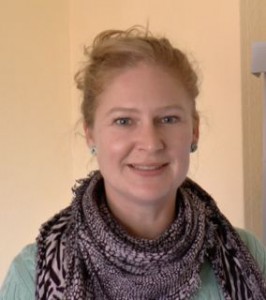 the new publication Ethnographie of Grey Zones in Eastern Europe. Relations, Borders and Invisibilities (Anthem Press 2015), edited by Ida Harboe Knudsen and Martin Demant Frederiksen. Her contrition is entitled: “Invisible Connections: On Uncertainty and the (Re)production of Opaque Politics in the Republic of Georgia”.
the new publication Ethnographie of Grey Zones in Eastern Europe. Relations, Borders and Invisibilities (Anthem Press 2015), edited by Ida Harboe Knudsen and Martin Demant Frederiksen. Her contrition is entitled: “Invisible Connections: On Uncertainty and the (Re)production of Opaque Politics in the Republic of Georgia”.
Read more about the publication: http://www.anthempress.com/ethnographies-of-grey-zones-in-eastern-europe-pb
On the security situation in Chechnya
Radio P4 interview with Märta-Lisa Magnusson, senior lecturer in Caucasus Studies at Malmö University, on the security situation in Chechnya.
Background
Following a decision by the Swedish Migration Board a Chechen family was sent back to Chechnya from Sweden. A couple of months after their return the father was killed.
Listen to the interview: http://sverigesradio.se/sida/artikel.aspx?programid=91&artikel=6129699
Abkhaz in the Lundic project
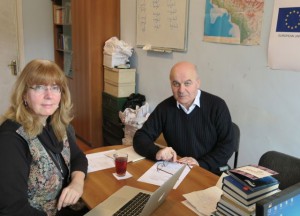 Abkhaz is one of the languages targeted in the research project LUNDIC “Lund Digital Atlas of Language and Culture” (http://project2.sol.lu.se/lundic/). Prof. Teimuraz Gvantseladze at the Institute for Abkhazology, Sokhumi State University (Georgia) http://sou.edu.ge/index.php discusses the process of data collection and the upcoming workshop with prof. Karina Vamling.
Abkhaz is one of the languages targeted in the research project LUNDIC “Lund Digital Atlas of Language and Culture” (http://project2.sol.lu.se/lundic/). Prof. Teimuraz Gvantseladze at the Institute for Abkhazology, Sokhumi State University (Georgia) http://sou.edu.ge/index.php discusses the process of data collection and the upcoming workshop with prof. Karina Vamling.
Current political dynamics in the South Caucasus
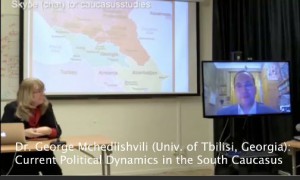 Web/campus seminar at Caucasus Studies, Malmö University: March 11
2015. George Mchedlishvili, Associate prof. of University of Georgia, gave a presentation at our web seminar on March 11, 16.15, on the topic “Current political dynamics in the South Caucasus”
Web/campus seminar at Caucasus Studies, Malmö University: March 11
2015. George Mchedlishvili, Associate prof. of University of Georgia, gave a presentation at our web seminar on March 11, 16.15, on the topic “Current political dynamics in the South Caucasus”
Watch the first part of the seminar: https://www.youtube.com/watch?v=aZxagU9n3Zc
Workshop: Sochi one year on
Sochi One Year On: Workshop on the Aftermath of the Winter Olympics of 2014
Malmö, Sweden, 12-13 February 2015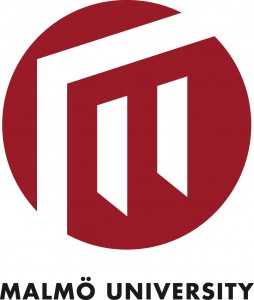
Organizers: Bo Petersson & Karina Vamling, Malmö University
Venue: Malmö City Museum, Linnaeus Room
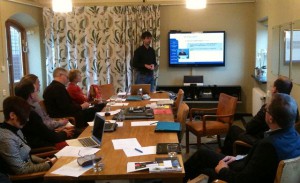 Thursday 12 February
Thursday 12 February
Alexandra Yatsyk (Kazan/Tartu): Abrading Russia’s sovereignty: from Sochi 2014 to the World Cup 2018
Martin Müller (Zürich): Value for money? Costs and benefits of the most expensive Games ever
Lars Funch Hansen (Copenhagen): Impressions after two field-visits to the Sochi Black Sea coast during 2014: Circassians and ethno-tourism
Friday, 13 February
Bo Petersson & Karina Vamling (Malmö): Fifteen Minutes Long Gone: The Circassians after Sochi
Sergei Akopov (St. Petersburg): Sochi-2014: how Olympics became a magnifier and source of competing symbolic politics
Concluding discussion
(Funding: Åke Wiberg Foundation and Malmö University)
Perspektiv på Ukraina, Ryssland och Kaukasus
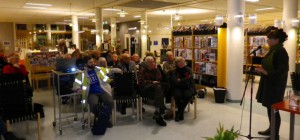 Märta-Lisa Magnusson, universitetslektor i kaukasusstudier vid Malmö högskola, höll föredrag på Arvika Bibliotek 11 februari över temat Perspektiv på Ukrainakrisen. Ryssland och de postsovjetiska staterna i Kaukasus.
Märta-Lisa Magnusson, universitetslektor i kaukasusstudier vid Malmö högskola, höll föredrag på Arvika Bibliotek 11 februari över temat Perspektiv på Ukrainakrisen. Ryssland och de postsovjetiska staterna i Kaukasus.
Det händer på Arvika Bibliotek http://arvika.se/kommunochpolitik/pressochinformationsmaterial/nyheter/nyhetsarkiv/dethanderpaarvikabibliotekv7.5.3278eb23144b2e75ebe17749.html
Welcome to the Spring semester 2015
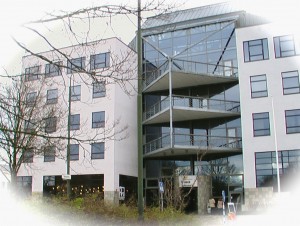 Today, January 19, is the first day of the Spring semester 2015. We are very happy to welcome all new students to our Caucasus Studies online courses:
Today, January 19, is the first day of the Spring semester 2015. We are very happy to welcome all new students to our Caucasus Studies online courses:
- Caucasus Field and Case Studies;
- Post-Soviet Caucasus:Politics, Civil Society: Economy;
- Caucasus Studies I.
We look forward to working with you and wish you a successful and interesting semester!
Caucasus Studies staff at Malmö University
Seminar on loanword typology in Lezgian
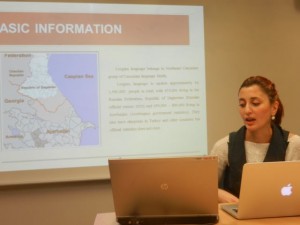 PhD candidate Maka Tetradze, Tbilisi State University & Eminence Erasmus Mundus exchange PhD candidate at Malmö University, outlines her findings on loanword typology on the basis of data collected on the Lezgian language (Northeast Caucasian, Dagestan languages).
PhD candidate Maka Tetradze, Tbilisi State University & Eminence Erasmus Mundus exchange PhD candidate at Malmö University, outlines her findings on loanword typology on the basis of data collected on the Lezgian language (Northeast Caucasian, Dagestan languages).
When? December 10, 10.15
Where? Malmö University, Gäddan8, Citadellsvägen 7





